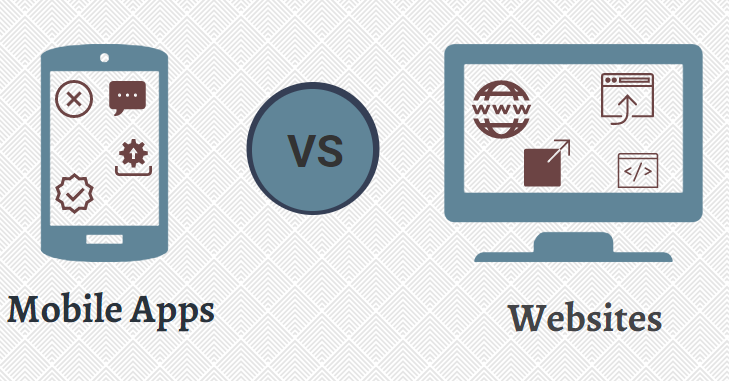Mobile App or Website? 8 Reasons Why Apps are better to Shop Online

As a result, businesses have grasped the need of using mobile platforms to efficiently attract clients. But this isn't enough. They must also optimize their mobile apps and websites to improve user experience and increase conversion rates in order to maximize this channel's potential. While some companies use both mobile websites and applications, others may have to pick between the two. The cost, usability, required functionality, and target audience all go into the decision between mobile apps and websites. However, research have shown that customers prefer mobile shopping app bd to mobile websites.
The choice is made based on the pricing, required features, and target audience. However, there are several compelling reasons to use apps as your primary platform. There are also a number of other factors that make mobile shopping app bd superior to mobile webpages.
The following is our top eight list:
Preferences of Users
The overall number of app downloads reached a new high of 197 billion last year. Furthermore, current consumers run an average of 9 applications each day and spend 90% of their total mobile time in them. These figures demonstrate the enormous business potential of apps as a channel for client acquisition and revenue generation. The majority of people prefer to download and use applications. Websites may be excellent for generating initial awareness and engagement, but they fall short in the later phases of the funnel, where apps demonstrate their value and encourage higher retention rates.
Notifications are easy to send
Email has been the most extensively utilized business communication tool for the previous two decades. Businesses have utilized email extensively (and in some cases, abused it) to communicate with their customers. As a result, email is no longer as effective as it once was; open and click rates have steadily declined.
Taking advantage of the capabilities of mobile devices
Mobile apps have the advantage of leveraging features such as the camera, contact list, GPS, phone calls, accelerometer, compass, and other features of a mobile device. When integrated within an app, such device features can make the user experience more dynamic and enjoyable. Furthermore, these features can help users save time by reducing the amount of effort they would otherwise have to put in. Users filling a form on a banking app, for example, may be required to provide a photograph in order to complete the procedure. Users can utilize the camera on their mobile device to snap and submit a photo using the app.
Apps are used for longer periods of time by users
Mobile consumers spend 86% of their time on mobile applications and only 14% on mobile websites. Furthermore, according to an eMarketer survey, users spend more than 90% of their mobile time on apps rather than the mobile web.
Customer loyalty is boosted via mobile ecommerce apps
People that download your mobile app initially demonstrate a higher level of commitment to your brand. They arrive ready to buy, whereas users to your mobile site are more likely to check specifics or look up contact information. Customers also spend three to four times as much time on apps as they do on mobile sites, and they do it on purpose.
Response time is shorter
The performance of a website or an app is a crucial concern for any internet user. Because applications store their data primarily on a mobile device, the time it takes for a mobile app to accomplish an action is substantially less than for a website. Although apps and websites link to servers, the amount of data exchanged between a server and a mobile application is ten times less than between a server and a browser. As a result, programs can obtain data considerably more quickly.
Increasing the average order value
We've already established that mobile ecommerce apps increase conversion rates, increase consumer loyalty, and reduce shopping cart abandonment. But let's get back to the topic of conversions, specifically the average order value. Mobile shopping app bd earn 140 percent more money than mobile sites and 130 percent more revenue than desktop sites, as you may recall. This is due to a combination of all of the points discussed in this article.
Benefits of Branding
This takes us to the final point: apps increase brand awareness and strengthen brand presence. As previously said, app usage is steadily increasing and increasingly eclipsing browser usage. Every interaction with a shopping app bd is an opportunity for businesses to build trust and loyalty.
It's not easy to make your ecommerce store the most successful, but you should take advantage of any possibility that will help you get closer to your business objectives. You can determine if starting your own ecommerce mobile business is the appropriate choice for you after considering all of the benefits.
No posts found
Write a review- +(880) 1729065599
- +(880) 1729065600
- Sat-Thu 9:30 AM - 6:30 PM
- sales@kablewala.com.bd




.png?1588583545460)
.png?1588583564301)
.png?1689248635216)